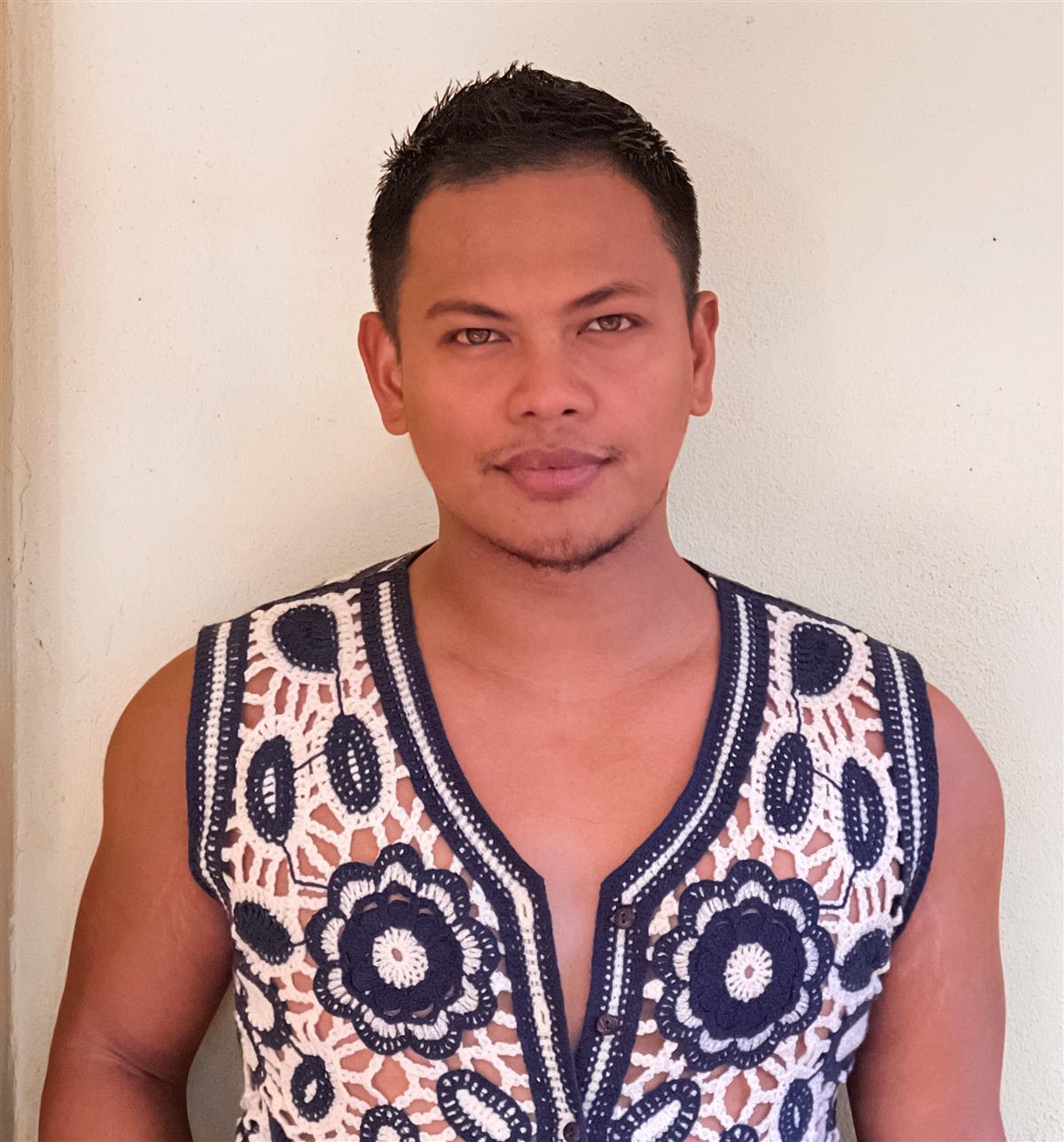
Bhen Alan (b. 1993, Cagayan Valley, Philippines) is a visual artist and professor who grew up
weaving and learning traditional folk dances. He immigrated to Toronto, Canada as a teenager
before settling in the United States. Alan’s work draws from his upbringing and diasporic experiences
to incorporate multiple disciplines and mediums that reflect both his cultural heritage and recent
contemporary investigations.
Alan holds an MFA in Painting and a Certificate in Collegiate Teaching in Art and Design from the
Rhode Island School of Design, and a BFA in Painting from the University of Massachusetts,
Dartmouth. From 2022-23, he received a Fulbright scholarship to conduct artistic research in the
Philippines, working alongside master weavers of indigenous tribes to research mat weaving culture.
His work has been exhibited at the Museum of Fine Arts Boston (Boston, MA), Cue Art (New York),
Syracuse University Art Museum (New York), UMass Amherst Museum of Contemporary Art,
(Amherst, MA) Praise Shadow Gallery (Brookline, MA), Real Art Ways (Hartford, CT), Kniznizk
Gallery at Brandies University (Waltham, MA), 808 Gallery at Boston University (Boston, MA), Rhode
Island School of Design (Providence, RI), Providence Public Library (Providence, RI), Hunter
Gallery (Middletown, RI), E.I.K. Gallery at Yale University (New Haven, CT), Culture Lab LIC (New
York, NY), Providence Public Art Library (Providence, RI), St. Botolph Club Foundation (Boston,
MA), John B. Aird Gallery (Toronto, Canada), Shockboxx Gallery (Hermosa Beach, CA), Providence
Art Club (Providence, RI), Bowersock Gallery (Provincetown, MA), and New Bedford National
Historical Park (New Bedford, MA), among many others.